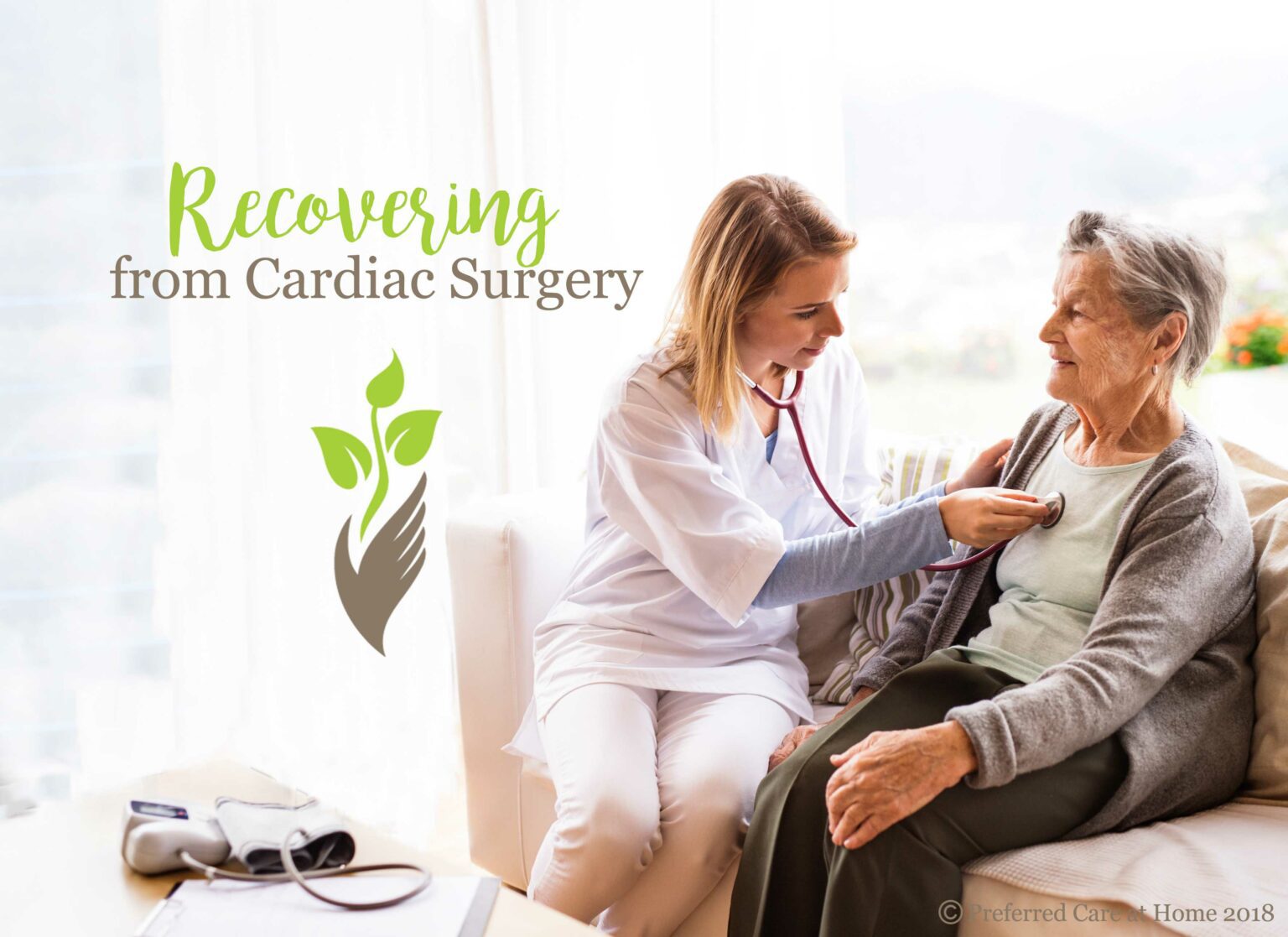Seniors and Surgery: Recovering From Cardiac Surgery
Published April 16, 2018 by R. Bradley Robinson, M.D. in Senior Health & Wellness

Cardiac surgery is a major event in ones’ life. By gathering the appropriate knowledge and setting the right expectations, you can maximize your recovery and return sooner to the life you enjoy.
Series Introduction: In this series, “Seniors and Surgery”, we are going to discuss important considerations for seniors who find themselves undergoing surgery. As we age, the risks associated with surgery increase. With this in mind, it is important to have a good understanding of appropriate post-operative care so that you can maximize efforts for a full recovery.
Every year in the United States, over 700,000 Americans suffer a heart attack.(1) Due to technologic advances, patients can often undergo minimally invasive heart catheterization with the placement of stents to open up blocked coronary arteries. However, if the blockage is too severe, your doctor may recommend ‘open heart surgery’ for coronary artery bypass grafting. Individuals may also undergo open heart surgery to replace one or more of the heart valves. While these operations are often life-saving, open heart surgery is an invasive procedure by nature. As such, there are some unique aspects to the recovery process that everyone undergoing this procedure should understand ahead of time.
Set the Right Expectations
When it comes to cardiac surgery, expectations are everything. Several studies have shown that patient expectations are actually an important predictor of overall patient outcome.(2) You should talk at length with your doctor about what to expect after surgery, but a few things can be said here.
- Following surgery, you will make your initial recovery in an ICU where your vital signs such as blood pressure, heart rate and rhythm, and respiratory status can be monitored very closely.
- Most individuals will spend 1-2 days in the ICU before moving to an intermediate care unit or a regular surgical ward. The length of your hospital stay depends on a number of variables, but most patients will be spend a total of 4-7 days in the hospital.
- You will probably feel very fatigued when you wake up from surgery. This feeling often lasts from days to weeks. Full recovery takes at least 1-2 months, and your energy will gradually increase over time until you get back to performing all your normal activities.
- Because of this fatigue and limitations on your activity, it is common to have feelings of depression in the first few months following heart surgery. It is important to be open about these feelings with your doctor and loved ones, who can provide emotional support during this time.
Understand Activity Limitations
During cardiac surgery, the sternum, or ‘breastbone’, is cut down the middle so the surgeon can access the heart. After the bypass or replacement of the heart valve is completed, the surgeon will then use wires or other material to hold the sternum together. Because the sternum takes 1-2 months to fully heal, your surgeon will instruct you to follow sternal precautions for a couple of months following surgery. These restrictions are important to follow in order to decrease the risk of sternal complications such as infection, sternal instability, wound dehiscience, and bleeding. Common sternal precautions are listed below.
- Hold a firm pillow or folded blanket over the sternum whenever you cough, laugh, or sneeze.
- Move from the seated to standing position without the use of your arms. Pushing up with your arms puts tension on the sternum.
- Do not drive until permitted by your surgeon.
- Do not lift more than 5-8 lbs. (Check with your surgeon for a specific cutoff).
- Do not push or pull any objects. For example, do not use a vacuum cleaner or perform other household tasks that require a similar motion.
Know Your Medications
Following surgery, you may find that your medications have changed. One of the risks of heart surgery is the development of an abnormal heart rhythm, such as atrial fibrillation. Medications such as betablockers (e.g Metoprolol) or anti-arrhymthics (e.g Amiodarone) are sometimes used for treatment in these situations. Most post-operative heart arrhythmias are short-lived and resolve with treatment. However, if a heart rhythm such as atrial fibrillation is persistent, your doctor may discuss starting blood thinning medications to reduce the risk of stroke. It is important to pay close attention to the medication instructions you are given upon discharge following cardiac surgery.
In summary, these are just a few important issues to understand about recovering from cardiac surgery. Most importantly, you should find a surgeon you trust and who takes the time to set appropriate expectations and answer all questions to your satisfaction. Cardiac surgery is a major event in ones’ life. By gathering the appropriate knowledge and setting the right expectations, you can maximize your recovery and return sooner to the life you enjoy.
(1) https://www.cdc.gov/heartdisease/facts.htm
(2) Optimizing preoperative expectations in cardiac surgery patients is moderated by level of disability: the successful development of a brief psychological intervention. Laferton JA, Auer CJ, Shedden-Mora MC, Moosdorf R, Rief W. Psychol Health Med. 2016;21(3):272-85.
If you have questions about senior home
care services or if you want to start care:
Related Posts

January 27, 2025
Is There a Food Allowance Card for Seniors?
Jody Guerrieri, RN.

January 27, 2025
What Causes Glassy Eyes in the Elderly?
Jody Guerrieri, RN.

January 27, 2025
What Age Is Considered a Senior Citizen?
Jody Guerrieri, RN.
Helping seniors age in place, with dignity & grace.